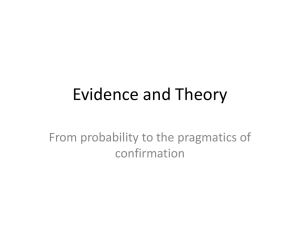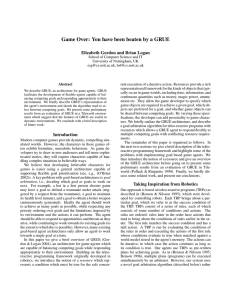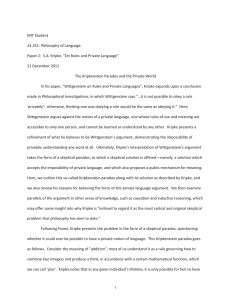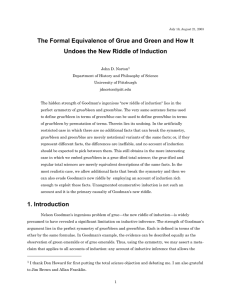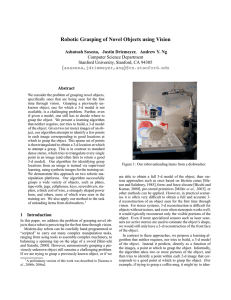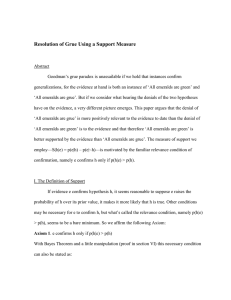Document 13387032
advertisement
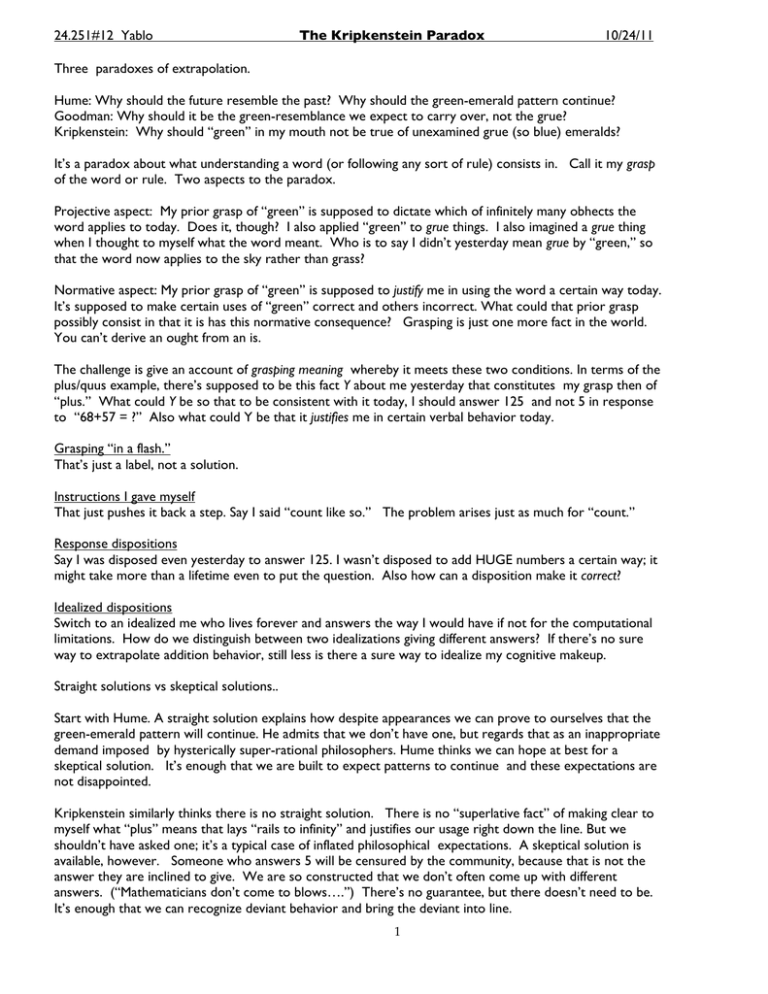
24.251#12 Yablo The Kripkenstein Paradox 10/24/11 Three paradoxes of extrapolation. Hume: Why should the future resemble the past? Why should the green-emerald pattern continue? Goodman: Why should it be the green-resemblance we expect to carry over, not the grue? Kripkenstein: Why should “green” in my mouth not be true of unexamined grue (so blue) emeralds? It’s a paradox about what understanding a word (or following any sort of rule) consists in. Call it my grasp of the word or rule. Two aspects to the paradox. Projective aspect: My prior grasp of “green” is supposed to dictate which of infinitely many obhects the word applies to today. Does it, though? I also applied “green” to grue things. I also imagined a grue thing when I thought to myself what the word meant. Who is to say I didn’t yesterday mean grue by “green,” so that the word now applies to the sky rather than grass? Normative aspect: My prior grasp of “green” is supposed to justify me in using the word a certain way today. It’s supposed to make certain uses of “green” correct and others incorrect. What could that prior grasp possibly consist in that it is has this normative consequence? Grasping is just one more fact in the world. You can’t derive an ought from an is. The challenge is give an account of grasping meaning whereby it meets these two conditions. In terms of the plus/quus example, there’s supposed to be this fact Y about me yesterday that constitutes my grasp then of “plus.” What could Y be so that to be consistent with it today, I should answer 125 and not 5 in response to “68+57 = ?” Also what could Y be that it justifies me in certain verbal behavior today. Grasping “in a flash.” That’s just a label, not a solution. Instructions I gave myself That just pushes it back a step. Say I said “count like so.” The problem arises just as much for “count.” Response dispositions Say I was disposed even yesterday to answer 125. I wasn’t disposed to add HUGE numbers a certain way; it might take more than a lifetime even to put the question. Also how can a disposition make it correct? Idealized dispositions Switch to an idealized me who lives forever and answers the way I would have if not for the computational limitations. How do we distinguish between two idealizations giving different answers? If there’s no sure way to extrapolate addition behavior, still less is there a sure way to idealize my cognitive makeup. Straight solutions vs skeptical solutions.. Start with Hume. A straight solution explains how despite appearances we can prove to ourselves that the green-emerald pattern will continue. He admits that we don’t have one, but regards that as an inappropriate demand imposed by hysterically super-rational philosophers. Hume thinks we can hope at best for a skeptical solution. It’s enough that we are built to expect patterns to continue and these expectations are not disappointed. Kripkenstein similarly thinks there is no straight solution. There is no “superlative fact” of making clear to myself what “plus” means that lays “rails to infinity” and justifies our usage right down the line. But we shouldn’t have asked one; it’s a typical case of inflated philosophical expectations. A skeptical solution is available, however. Someone who answers 5 will be censured by the community, because that is not the answer they are inclined to give. We are so constructed that we don’t often come up with different answers. (“Mathematicians don’t come to blows….”) There’s no guarantee, but there doesn’t need to be. It’s enough that we can recognize deviant behavior and bring the deviant into line. 1 MIT OpenCourseWare http://ocw.mit.edu 24.251 Introduction to Philosophy of Language Fall 2011 For information about citing these materials or our Terms of Use, visit: http://ocw.mit.edu/terms.

